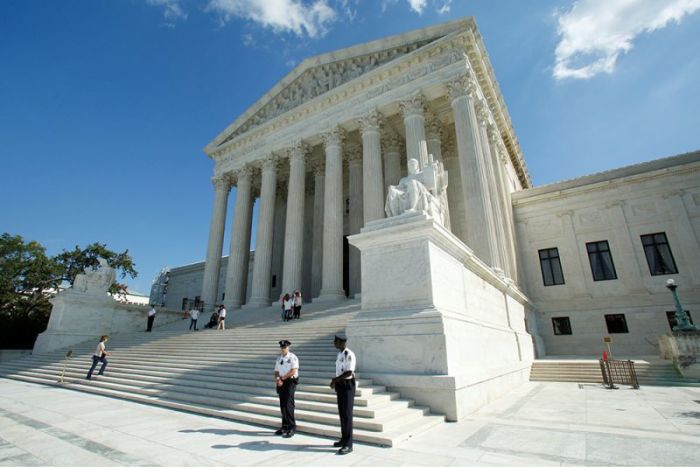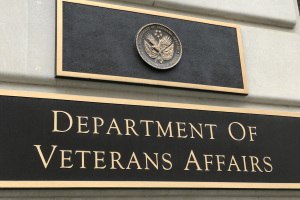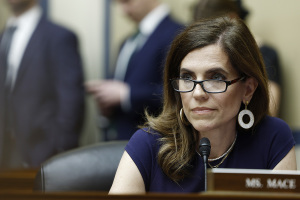Supreme Court says Maine can’t bar parents from using state funds to send kids to religious schools

The United States Supreme Court has ruled that Maine cannot prohibit parents from using a state tuition program to send their children to religious private schools.
In a decision released Tuesday in the case of David Carson et al. v. A. Pender Makin, the high court ruled 6-3 that a state tuition assistance program could not stop parents from using the funds for schools that have sectarian instruction.
Chief Justice John Roberts wrote the majority opinion, writing that "we have repeatedly held that a State violates the Free Exercise Clause when it excludes religious observers from otherwise available public benefits."
"As noted, a neutral benefit program in which public funds flow to religious organizations
through the independent choices of private benefit recipients does not offend the Establishment Clause," Roberts wrote.
"Maine’s 'nonsectarian' requirement for its otherwise generally available tuition assistance payments violates the Free Exercise Clause of the First Amendment. Regardless of how the benefit and restriction are described, the program operates to identify and exclude otherwise eligible schools on the basis of their religious exercise."
The Supreme Court decision reverses an appeals court ruling and remands the case for further proceedings consistent with the opinion released Tuesday.
Joining Roberts for the majority were Justices Clarence Thomas, Samuel Alito, Neil Gorsuch, Brett Kavanaugh and Amy Coney Barrett.
Justice Stephen Breyer authored a dissent, joined by Justices Elena Kagan and Sonia Sotomayor, in which he argued that the tuition aid restriction was constitutional.
"The First Amendment begins by forbidding the government from 'mak[ing] [any] law respecting an establishment of religion.' It next forbids them to make any law 'prohibiting the free exercise thereof.' The Court today pays almost no attention to the words in the first Clause while giving almost exclusive attention to the words in the second," wrote Breyer.
"It sometimes allows a State to further antiestablishment interests by withholding aid from religious institutions without violating the Constitution’s protections for the free exercise of religion. In my view, Maine’s nonsectarian requirement falls squarely within the scope of that
constitutional leeway."
In 2018, a group of parents sued Maine over a ban on state tuition assistance for families sending their children to a private school that includes sectarian aspects in its curriculum.
The plaintiffs included the Carsons and the Gillises, who enrolled their kids at Bangor Christian School, and the Nelsons, who wanted to transfer their daughter from a secular private school to Temple Academy, where their son was enrolled.
Eventually, the Gillises were removed from the litigation because their daughter graduated from high school and was therefore no longer potentially eligible for the tuition assistance program.
U.S. District Judge Brock Hornby ruled against the families in June 2019, concluding in his decision that “Maine’s educational funding program is constitutional.”
In October 2020, a three-judge panel of the U.S. Court of Appeals for the First Circuit unanimously upheld the lower court decision, with Circuit Judge David Barron writing the opinion.
“Maine transgresses neither the Free Exercise Clause nor the Establishment Clause,” wrote Barron. “Rather, it permissibly satisfies a commitment, rooted in its own founding charter, to pursue the wholly legitimate end of ensuring the distribution of the benefits of a free public education even to those who happen to live in places that cannot provide it of their own accord.”
In July of last year, the Supreme Court agreed to take up Carson v. Makin, with the high court hearing oral arguments in the case for nearly two hours in December.
Michael Bindas of the Institute for Justice, who argued the case before the Supreme Court on behalf of the parents, said that since the program gives money to parents, who in turn choose a school, it is not unconstitutional for the parents to choose a religious school.
"That private independent choice severs the link between government funds and religious instruction," Bindas told the high court last year. "It's saying, 'use it where you will.'"
"This is not subsidizing the ... exercise of a right. It is conditioning the availability of an otherwise available public benefit on the surrender of a constitutional right.”
Maine Chief Deputy Attorney General Christopher Taub delivered arguments on behalf of the state, arguing that the program was meant to give students "a free public education," not a religious education.
"The reason that schools that promote a particular faith are not eligible to participate is simple," said Taub in his opening remarks last year. "Maine has determined that as a matter of public policy, public education should be religiously neutral."





























